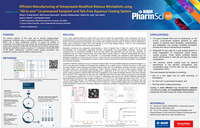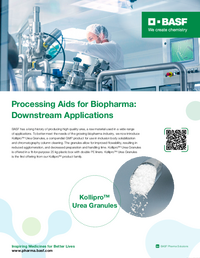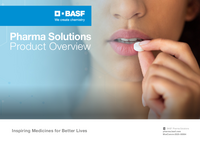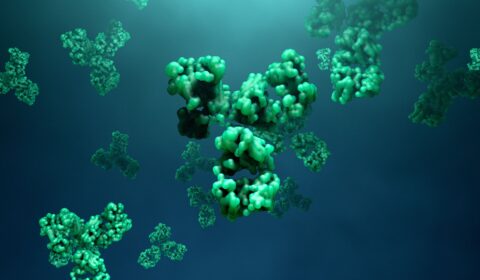BASF BioPharma Attends BPI East
On September 23-26 our BASF BioPharma team attended the BPI East Conference in Boston, Massachusetts, where we were excited to showcase our biopharma ingredient offerings including Kolliphor® P188 Bio and our most recently announced offerings Kolliphor® P188 Cell Culture and Kollipro™ Urea Granules.
BPI East brings together a diverse range of stakeholders from across the biopharma and cell and gene therapy industry, with representation from both large and small innovators, as well as a wide range of suppliers that provide ingredients, services and equipment into these markets.
One of the highlights at the conference was our presentation on "Overcoming Raw Material Variability in Bioprocessing". We addressed the challenges of raw material variability in biomanufacturing and its impact on cell performance and titers. Our expert shared novel information on the mode of action of poloxamer 188 and its impact on cell metabolism as well as valuable insights on how BASF's Kolliphor® P188 Bio and Kolliphor® P188 Cell Culture can reduce performance variations, enabling more robust and efficient bioprocesses.
In addition, Jason S. Wood from the team participated in a poster presentation session where he discussed the “Evaluation of foam stability and shear protection of Kolliphor® P188 Bio and Kolliphor® P188 Cell Culture”. Foam generated in mammalian cell cultures by agitation or gas sparging needed to keep appropriate dissolved oxygen (DO) presents a unique challenge because of its detrimental effects on the bioprocess1. The key takeaways from Jason's poster are that Kolliphor® P188 Cell Culture produces a less stable, faster dissipating foam, while Kolliphor® P188 Bio offers good shear protection with high viability and viable cell density in both CHO-S and HEK 293 cells. Kolliphor® P188 Cell Culture can also have a positive impact in viable cell density under high shear conditions in both CHO-S and HEK 293 cells.
To view the full poster, click here.
Announcing Kollipro™ Urea Granules
During the conference, we also had an exciting announcement for visitors to our booth! We gave a sneak peek of our brand-new product for downstream bioprocessing, Kollipro™ Urea Granules. Downstream processing is crucial for the purification, separation, and recovery of target molecules in biopharmaceutical production. Our GMP-compendial Kollipro™ Urea Granules enhance flowability, minimize agglomeration, and reduce preparation and handling time. They are particularly effective in addressing APIs produced as inclusion bodies in bacterial fermentation by solubilizing them to allow for effective recovery and purification. Urea is also widely used for eliminating residual proteins from chromatography columns during the purification process.
1Wu, J. 1995. J. Biotechnol. 43:81-94.








